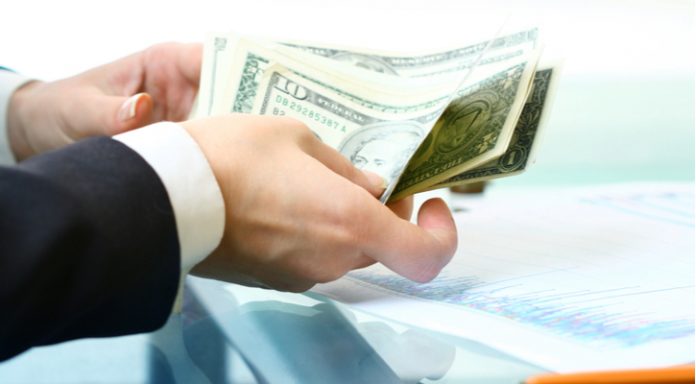The boost to the pound following UK Prime Minister Theresa May’s victory in Parliament was short lived. A stronger dollar later in the session pulled the pound US dollar off its peak of US$1.3216 back towards break even.
| What do these figures mean? |
|---|
| When measuring the value of a pair of currencies, one set equals 1 unit and the other shows the current equivalent. As the market moves, the amount will vary from minute to minute. For example, it could be written: 1 GBP = 1.28934 USD Here, £1 is equivalent to approximately $1.29. This specifically measures the pound’s worth against the dollar. If the US dollar amount increases in this pairing, it’s positive for the pound. Or, if you were looking at it the other way around: 1 USD = 0.77786 GBP In this example, $1 is equivalent to approximately £0.78. This measures the US dollar’s worth versus the British pound. If the sterling number gets larger, it’s good news for the dollar. |
UK Prime Minister managed to see off a rebellion from within her own party to win a key vote on the Brexit Bill in Parliament. UK lawmakers voted 319 — 303 to reject an amendment to the Brexit bill that would have given Parliament more power in the event of a no deal Brexit. The meaningful vote amendment could have prevented Theresa May from walking way with a no deal Brexit — the worst possible case scenario for UK businesses. By winning the vote Theresa May is able to continue with her Brexit strategy and has won more authority, reducing political risk. As a result, the pound rose.
| How does political risk have impact on a currency? |
|---|
| Political risk drags on the confidence of consumers and businesses alike, which means both corporations and regular households are then less inclined to spend money. The drop in spending, in turn, slows the economy. Foreign investors prefer to invest their money in politically stable countries as well as those with strong economies. Signs that a country is politically or economically less stable will result in foreign investors pulling their money out of the country. This means selling out of the local currency, which then increases its supply and, in turn, devalues the money. |
Today there are two big events today which could impact on the value of the pound. First the Bank of England (BoE) interest rate decision and the release of the monetary policy committee minutes (there is no press conference). Analysts are widely expecting the central bank to keep rates on hold at 0.5%. Investors will be paying close attention to the language in the press release for any clues as to whether the BoE will hike in August. Any indication that an August hike is still on the cards, despite some weak economic data, could boost the pound.
| Why do raised interest rates boost a currency’s value? |
|---|
| Interest rates are key to understanding exchange rate movements. Those who have large sums of money to invest want the highest return on their investments. Higher interest rate environments tend to offer higher yields. So, if the interest rate or at least the interest rate expectation of a country is relatively higher compared to another, then it attracts more foreign capital investment. Large corporations and investors need local currency to invest. More local currency used then boosts the demand of that currency, pushing the value higher. |
Fed Chair Powell Boosts The Dollar
An appearance by Federal Reserve Chair Jerome Powell at Sinatra helped lift the dollar. Investors knew that the Federal Reserve were confident over the health of the US economy following the Fed meeting last week. Fed Chair repeated that message in the previous session confirming in the process that the Fed would continue hiking interest rates.
This was news that investors wanted to hear. The Fed has not changed its opinion on the US economy in light of the recent trade war developments.
Today sees attention switch back towards the US economic calendar with jobless claims, US Housing price index and Philadelphia Fed Business outlook all potentially causing some volatility.
|
This article was initially published on TransferWise.com from the same author. The content at Currency Live is the sole opinion of the authors and in no way reflects the views of TransferWise Inc. |





